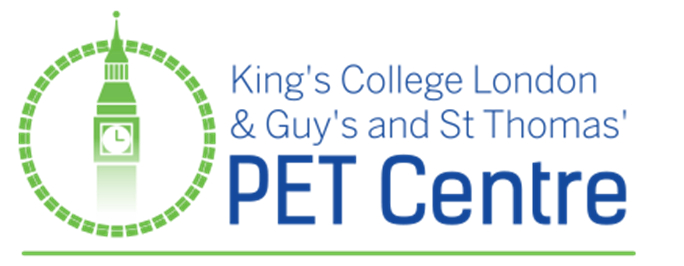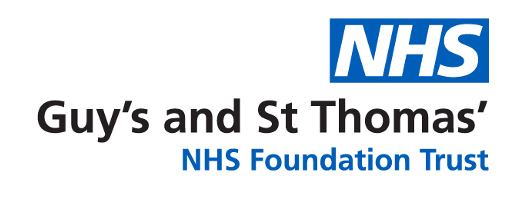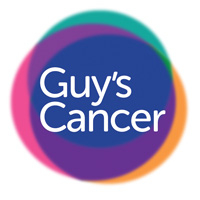PET-CT is a type of scan in which a PET scan and a CT scan are performed at the same time.
PET stands for Positron Emission Tomography. Before a PET scan we inject a small amount of radioactivity, most commonly a tiny amount of radioactive sugar, which travels around the body and is taken up by parts of the body that use a lot of sugar. The PET scanner shows us where in the body the tracer was taken up, giving us important information about many conditions affecting different organs of the body, which will help your doctor to plan appropriate treatment for you.
CT stands for computed tomography. A CT scan uses x-rays to produce a picture of the inside of your body. Combining PET and CT allows us to localise the exact part of the body where the PET tracer was taken up, providing more information for your doctor about the medical problem you have.
PET-MR is a type of scan in which a PET scan and an MRI scan are performed at the same time.
PET stands for Positron Emission Tomography. Before a PET scan we inject a small amount of radioactivity, most commonly a tiny amount of radioactive sugar, which travels around the body and is taken up by parts of the body that use a lot of sugar. The PET scanner shows us where in the body the tracer was taken up, giving us important information about many conditions affecting different organs of the body, which will help your doctor to plan appropriate treatment for you.
MRI stands for magnetic resonance imaging. An MRI scan uses a combination of a strong magnet and radiowaves to produce detailed pictures of the inside of your body. Combining PET and MR allows us to localise the exact part of the body where the PET tracer was taken up, providing more information for your doctor about the medical problem you have.
For most PET scans, you will need to fast and to drink plain water only. Please check your appointment letter carefully as it contains important information about not eating before your scan. Please note that that you do not need to keep a full bladder.
If you are diabetic, we will give you specific instructions about your medication and will book your scan at the best time to help adjust your medication. Please contact us on 020 7188 4988 for further information.
We suggest that you wear something warm, loose and comfortable. It is important that you are not wearing any metal - including jewellery, watches, zips, and bra hooks - during the scan, as this may interfere with the scan. We may ask you to change into a hospital gown if required.
The scan should be completely painless. The most difficult part is keeping still. The scanner is a short tunnel, so if you get claustrophobia (fear of enclosed spaces) please let us know before you come for your scan.
This will depend on the type of scan, but you should expect to be in the department for two to three hours. Typically, you will spend about 30 minutes in the scanner.
If you wish, a relative or friend may accompany you and wait in the waiting room. It is very important that you do not bring children or pregnant women to accompany you in the department.
The radiographer/technologist will talk to you during the scan to let you know what is happening. If you are particularly anxious, a friend or relative can stay in the room during the scan.
There are no side effects from the radioactive tracer. Occasionally when performing body or heart scans we may need to give you other drugs and, if this is the case, we will discuss the possible minor side effects with you.
Our scans use a small amount of radiation to form images of your body and provide your doctor with clinical information on both the structure and function of your body. Every request we receive for a PET scan is individually assessed by a doctor with a specialist training in PET. If you have been booked in for a scan it has been decided that the potential benefits of the test outweigh the very small risks due to the radiation exposure.
Ionising radiation can cause cell damage that may, after many years or decades, turn cancerous. The normal lifetime risk of developing cancer is about 50%. Having this scan will increase the chances of this happening to you from about 50% to about 50.1%.
Please tell us in advance if you know you are pregnant (or think that you may be), are breastfeeding, or are the main carer of small children. We may need to give you additional information.
Patients with heart pacemakers and certain other surgical implants, for example a cochlear implant, cannot be scanned in a PET-MR scanner. If you are having a PET-MR scan, you will be asked to complete and sign a safety questionnaire beforehand to make sure it is safe for you to be scanned.
The amount of radiation you're exposed to in a PET-CT or PET-MR scan is small. The dose you will receive depends on several factors but as a guide for an average-sized adult:
- PET-CT brain scan: Up to 5mSv per scan. This is about the same amount you get from natural background radiation over 2 years.
- PET-CT body or heart scan: Up to 13mSv per scan. This is about the same amount you get from natural background radiation over 6 years.
As soon as the scan is finished, you can go home, or back to your ward if you are staying in the hospital. You can eat and drink as normal and resume your usual activities. We normally supply a sandwich to eat after the scan.
We will send the results to the doctor who requested the scan, usually within 48 hours of the scan being completed. If results are needed more urgently your doctor can ask us to email or fax them. If you have a future appointment with your doctor, please let us know the date when you attend for your scan.




